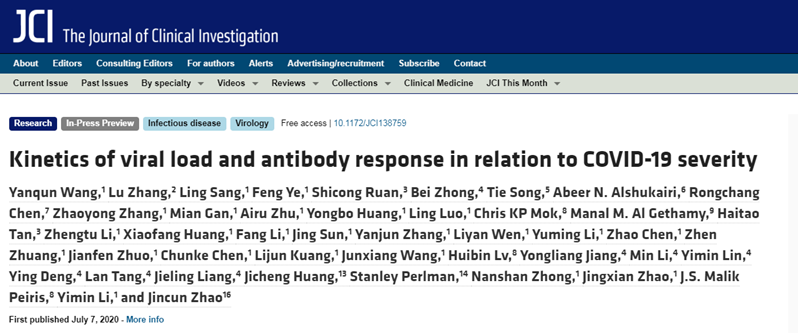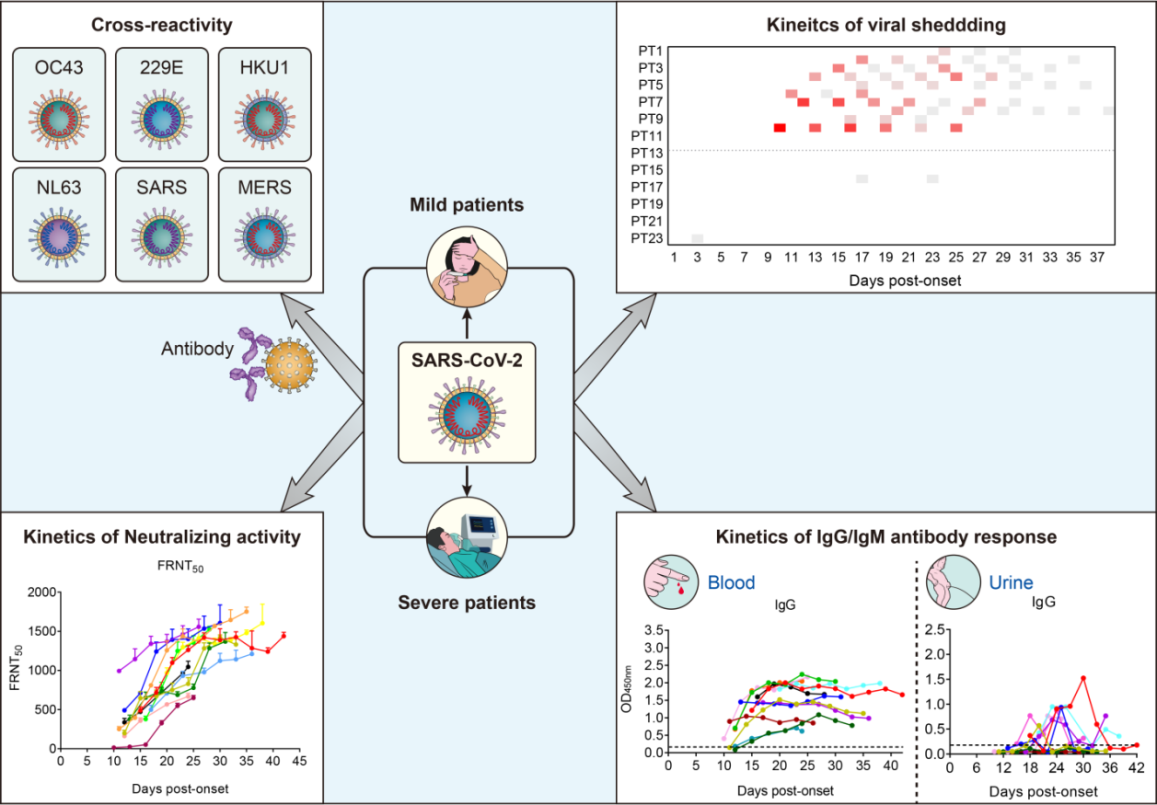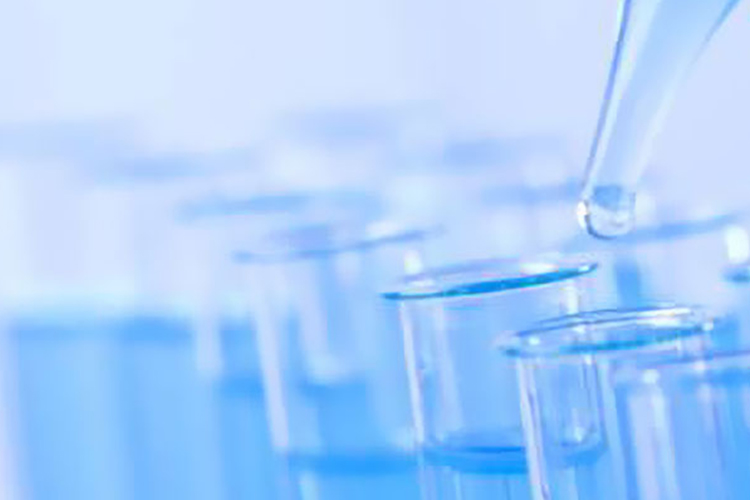SKLRD Jincun Zhao’s Research Team Discovered the Relation Between COVID-19 Severity and Antibody Response
2020-07-081640Recently, under the guidance of Academician Nanshan Zhong, Professor Juncun Zhao’s research team from the State Key Laboratory of Respiratory Disease worked with units including Qingyuan People’s Hospital, Yangjiang People’s Hospital, Pasteur Foundation Asia of Hong Kong University, and Guangdong Provincial Center for Disease Control and Prevention, and discovered that kinetics of viral load and antibody response is related to COVID-19 severity, providing important guidance for the diagnosis and treatment of patients with COVID-19. The related paper “Kinetics of viral load and antibody response in relation to COVID-19 severity” is published on the famous Journal of Clinical Investigation.

The research analyzed the kinetics of viral load and antibody response in severely and mildly ill patients in detail, and found that most patients in ICU had prolonged viral shedding (for 20-40 days) after onset of disease in a variety of tissues (respiratory tract samples, feces, urine, blood, etc.), while mildly ill patients had viral shedding restricted to the respiratory tract and had no detectable virus RNA 10 days after onset. IgG responses were detected in most patients in both the severe and mild groups, but mildly ill patients showed significant lower IgM response compared with that of the severe group, which indicates that a false negative should be noted in serological tests of mild patients with IgM as the mainstay. Further research found that high levels of virus-specific antibodies were detected in samples like the urine, sputum, pleural effusion and BALF of severely ill patients, suggesting that they have suffered from multiple organ dysfunction, which can be seen as a marker for severe COVID-19, providing reference for the diagnosis and treatment of clinicians. In addition, high levels of neutralizing antibodies were induced in the severely ill patients after onset. Strong cross-reactivities were detected between SARS-CoV and SARS-CoV-2. However, plasma from SARS-CoV convalescent patients could not neutralize SARS-CoV-2 virus, showing that SARS-convalescent patients is not necessarily safe from COVID-19. What’s more, a certain difference in the levels of antibodies induced by different viral immune proteins was found in the early stage after onset, so suitable immune protein testing is needed. There were no cross-reactivities found between SARS-CoV-2 and MERS-CoV, which have excluded the possibility of the confusion of patients with MERS and patients with COVID-19. It is important for countries in the Middle East where two highly pathogenic coronaviruses are prevalent to make an accurate diagnosis of the diseases. There is a significant positive correlation between the specific binding of antibodies induced by the S and N proteins of SARS-CoV-2 and the neutralizing antibody titers, which can be used to initially determine the production and level of neutralizing antibodies in patients during clinical diagnosis and treatment.

Full article: https://www.jci.org/articles/view/138759
















